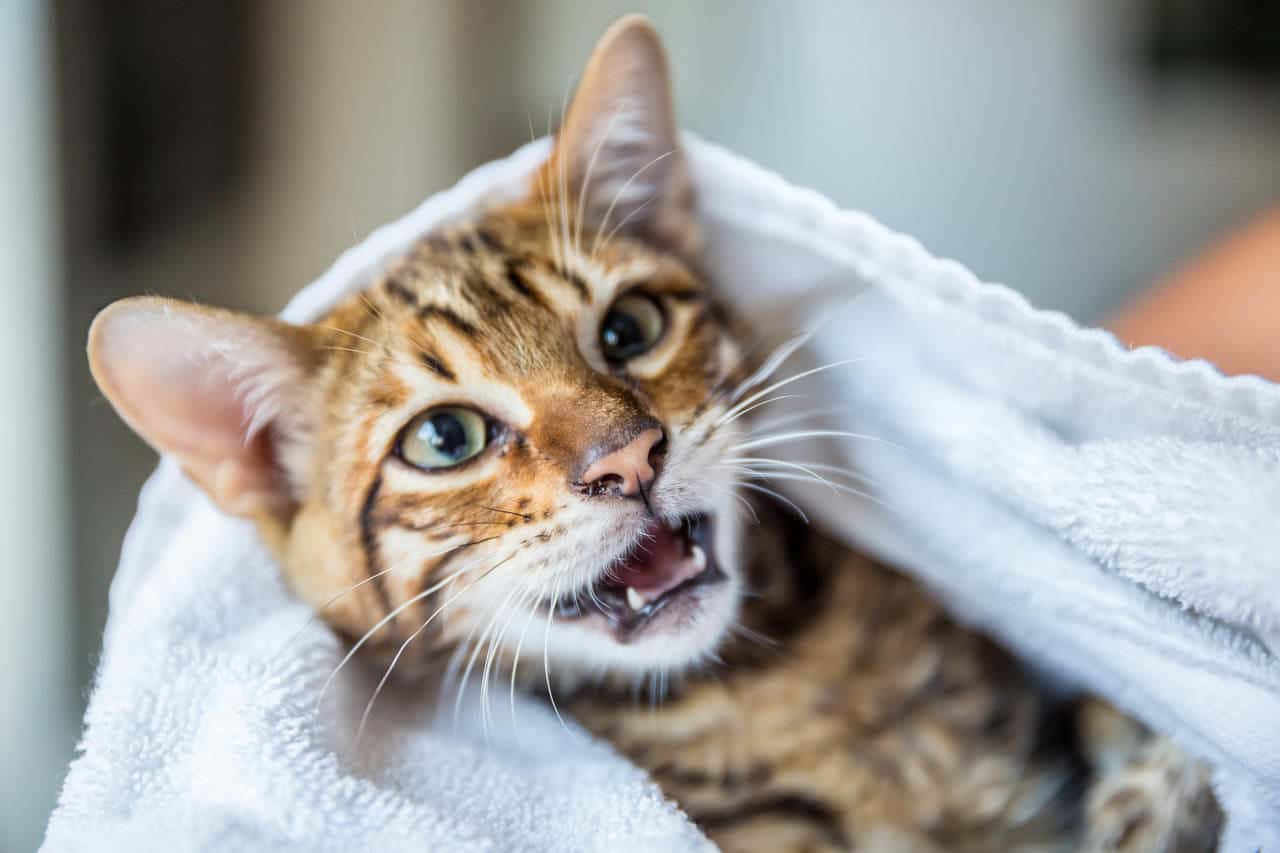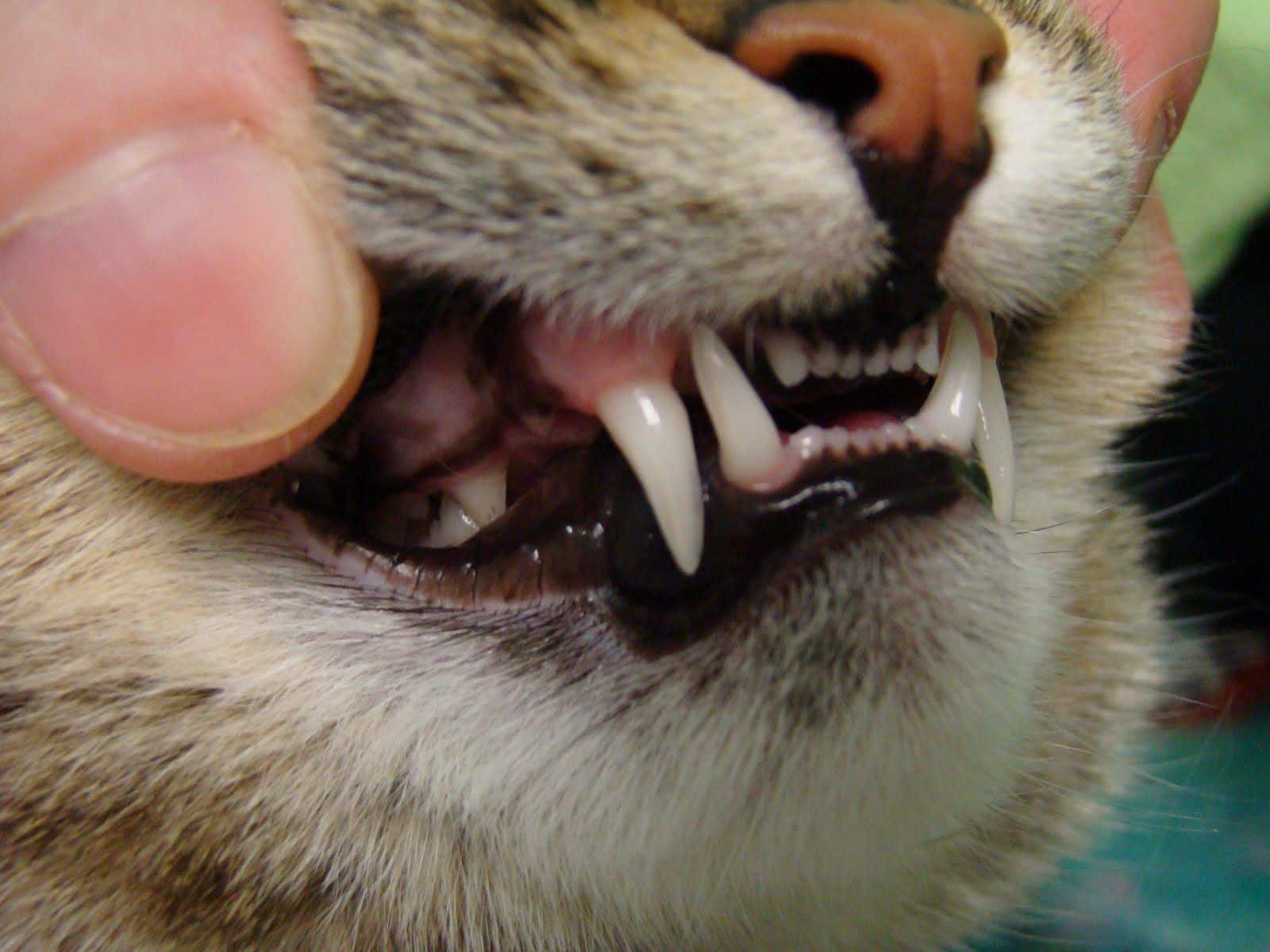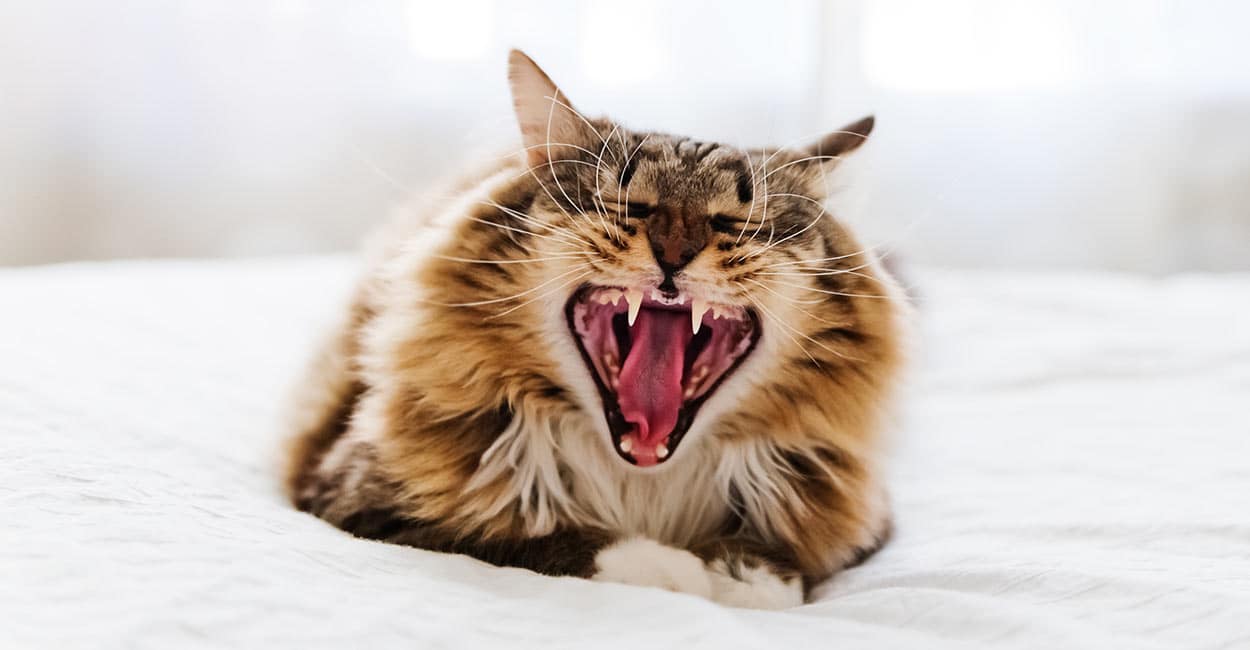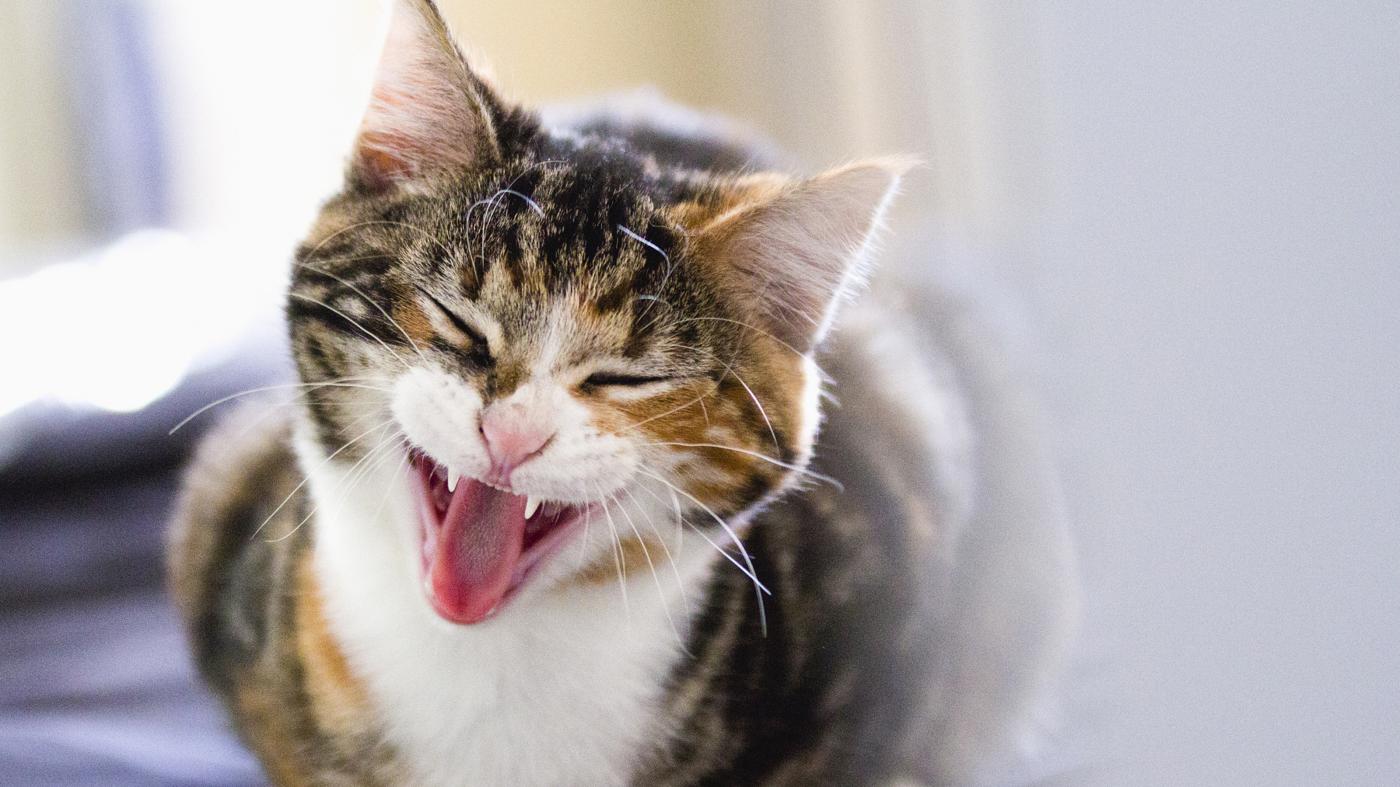
The cat, in addition to having retractable claws that can do a lot of damage, it also has a denture strong enough to break small bones, as well as to tear the meat without any problem. It is a predatory animal that, from its origin, has hunted rodents and small animals to survive.
Although now we "hunt" for them and leave the food always prepared on their plate, they still have the same tools as their ancestors: an almost perfect night vision, an ear capable of detecting the sound of the mouse from 7 meters away, and of course, very strong teeth with which it can feed or defend itself. But, How is the growth of teeth in cats?
Cat tooth growth

Up to two months of life
The kitten is born blind, deaf, and toothless. But that soon changes: about 12 days later, he opens his eyes, and his first baby teeth begin to erupt after two weeks of age. At that time, it is still too early to even think about giving him solid foods, since they are very small. Of course, after a few weeks, more or less a month and a half, you will have your 26 baby teeth formed.
Although they are made of milk, they already hurtI am telling you from experience, so from now on it is very important that you do not put your finger in front of your mouth because otherwise when you are older you will keep trying to bite us.
From two to six months
During these months the kitten little by little the baby teeth will be shed to replace them with the definitive ones, which will be 36 including four molars. It is not known which are the first to fall, since as they fall, the definitive ones appear immediately, but it is believed that the incisors are the first.
At this stage the furry will try to bite everything to relieve gum pain, so you must provide soft toys so you can chew them without feeling discomfort.
8 questions about cat teeth that will interest you
People who have cats as pets in their families will be interested in everything related to these small felines, and also, about their teeth ... although it may also be that they neglect this part of their animal's body, something that could cause problems in the long run.
Next we are going to answer some questions that are quite common about cat teeth, take note of the dental health of your feline!
How many teeth do cats have?
Cats have 30 adult teeth and 26 baby teeth. That's far less than dogs (42 and 28) and less than humans (32 and 20). Those upper canine "fangs" or teeth often protrude in a saber-toothed tiger style and give some cats an intimidating smile.
When do your teeth come out?
Observing the eruption or appearance of teeth is a great method to estimate the age of a kitten. This is particularly useful when you come across a stray kitten. The first teeth to erupt are the small front or incisor teeth and the long, pointed canines. The primary incisors and canines (or "babies") become visible around three to four weeks.
The teeth immediately behind the canines, the premolars, quickly follow the front teeth. This usually occurs when kittens are around five to six weeks old. Permanent teeth erupt at around 11-16 weeks, starting with the incisors followed by the canines at 12-20 weeks. The premolars are in place between 16 and 20 weeks. Difficult-to-see molars emerge around 20-24 weeks.
Do cats have cavities?

Dental cavities, or "cavities" for the rest of us who don't call ourselves "dentists," are rare in cats and dogs.. This is due in part to a cat's relatively low-sugar diet, differences in oral bacteria, and the shape of the teeth. When cavities do occur, they can be painful and require repair procedures similar to humans with cavities or tooth decay.
Why can a cat bite get infected?
Anyone who has worked and owned enough cats knows that when a cat bites you, not only does it hurt like you know it, but those deep wounds are likely to become infected or have an abscess. The first answer lies within the unique anatomy of one of a cat's main weapons: those long, sharp, pointed canines. Designed similarly to hypodermic needles, these teeth excel at intense meat penetration, damaging underlying structures like arteries and veins.
Also, like that needle, they carry pathogenic bacteria inside the body. As the tooth is removed, the narrow puncture wound closes in on itself, becoming trapped behind an infection that later turns into an abscess. To make matters worse, a cat's mouth contains several species of highly pathogenic microorganisms. If you are bitten by a cat you should go to the doctor quickly because you will probably need to start a course of antibiotics.
Do cats grow teeth?
After a cat puts all 30 permanent teeth in place, that's it. There's no more. Lose a tooth and your cat will always have 29. Unlike rodents, a cat's teeth don't keep growing.
Do Cats Need Braces?
It sounds like a joke, but some cats do, in fact, need braces to correct some very serious oral malformations. The most common reasons for feline splint face include saber- or spear-shaped canine projections from the upper canines in Persian cats. The "crooked bite" is another problem that occurs when an uneven bite occurs., causing one or both canines to protrude at odd angles, preventing normal eating and drinking. These cat appliances can save your life.
Can cats get mouth cancer?
Unfortunately yes. Oral tumors in cats are very serious and require immediate and aggressive treatment. Squamous cell carcinomas are the most common malignant oral tumor in cats, although many other forms of cancer occur. If you notice any lumps, swelling, or discolored areas in your cat's mouth, see the vet immediately.
Why does my cat have a swollen mouth?
There is a condition called stomatitis (more correctly known as lymphocytic plasmacytic gingivitis pharyngitis syndrome). This condition is also very painful and most cats have trouble eating and swallowing, weight loss, and excessive salivation. Treatments vary widely, and cats respond differently to a variety of options. The exact cause is unknown, although an underlying immune-mediated disorder is strongly suspected. Be patient and work closely with the vet. Cats with stomatitis require prolonged periods of treatment.
Should cats brush their teeth?
Not everyone brushes their cats' teeth and nothing happens. But you need to take care of your oral health as a dental infection could be fatal for your feline friend. One way to take care of his mouth is for the vet to clean his teeth regularly (once a year for example) under anesthesia.
Dental X-rays can be taken while the cat is asleep to make sure there are no hidden problems under the gums.. You can also give your cats vet-approved treats that can help reduce tartar between your cat's teeth.
There are cats that also tolerate oral antimicrobial rinses so that they "rinse their mouths" several times a week. Finally, getting in the habit of (carefully) lifting cats' lips and examining their teeth and gums every week will help make sure everything looks healthy. So don't worry; take your cats to your vet at least once a year, have their teeth cleaned by a professional when necessary, perform routine oral check-ups at home, and use proven products to help keep your kitty's mouth healthy.
Felines grow very quickly; your teeth too. Take care of them so that they live healthy throughout their lives 🙂.
